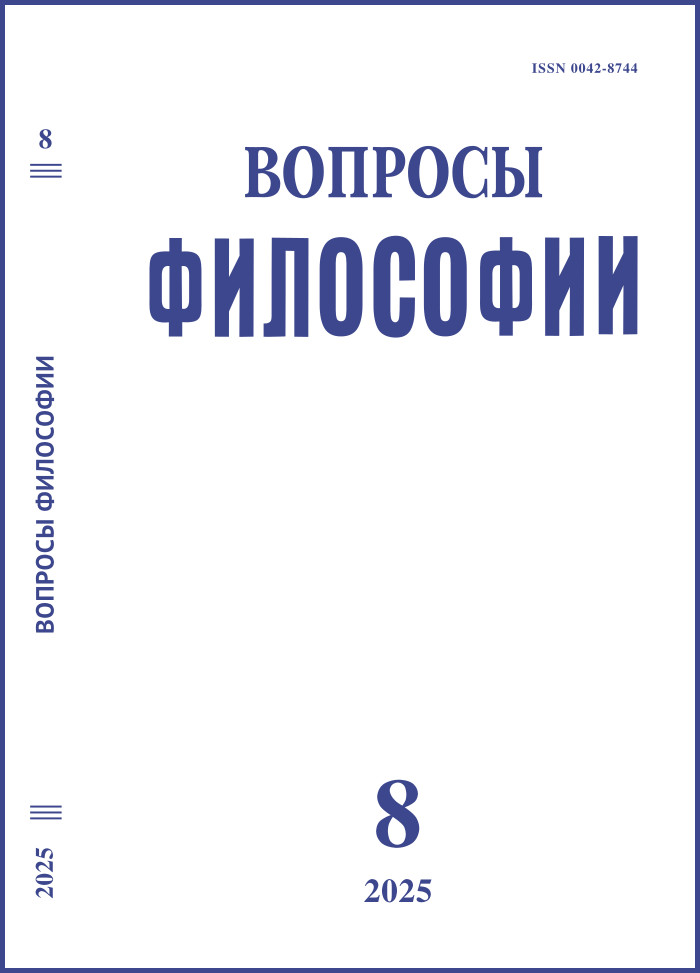Model of Philosophical Anthropology in the Philosophy of V.S. Stepin
DOI:
https://doi.org/10.21146/0042-8744-2025-8-76-85Keywords:
V.S. Stepin, philosophical anthropology, philosophy of science, methodology, activity, culture, problem of man, types of rationality, universals of culture, technogenic civilization, humanistic values, self-developing systems, picture of the world, the structure of human beingAbstract
The article reveals an innovative approach to the philosophical anthropology and its problems by the famous Russian philosopher V.S. Stepin, who has received the greatest recognition as a philosopher of science. A specific feature of his approach is the application of historicism to the philosophy of science, the substantiation of the thesis on the change of historical types of scientific rationality, and the distinction between three types of scientific rationality. The description of classical rationality allows him to pose the problem of human subjectivity, and the description of postnonclassical rationality opens the way to the problem of socio-cultural determination of knowledge. The desire for objectivity in the cognition of complex, developing “human-sized systems” requires an understanding of what the knowing subject is as a man, taking into account humanistic values. In turn, modern philosophical anthropology is represented by various philosophical trends and movements, which are united by the search for an alternative to classical anthropology. The article examines the discussions of the subject and problematic field of philosophical anthropology in Russian philosophy of the second half of the 20th century. The author comes to the conclusion that V.S. Stepin made a significant contribution to defining the status of philosophical anthropology in the system of philosophical knowledge, its possible role in methodological research. When mastering “human-dimensional systems” and ethically assessing the corresponding research programs, there is a demand for special expert knowledge and new philosophical and methodological understanding. In this case, the traditional problems of the philosophy of science are radically expanded, moving into philosophical anthropology. There is an opportunity to develop philosophical anthropology as a general doctrine of culture and man, to build ideas about human nature, models of culture. Thus, the question of the types of scientific rationality contributed to reaching a non-standard level of understanding the problem of man, created methodological foundations for new approaches to its solution. By attracting the vast post-Soviet field of methodological practices in the postnonclassical paradigm of science, it is possible to change the critical perspective of philosophical-anthropological research.

